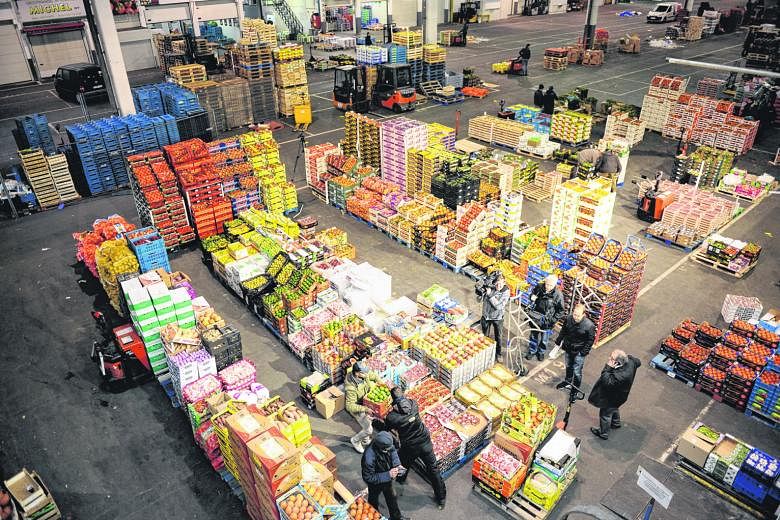BRUSSELS • It is 6.45am in Brussels, and already the morning food market is quietly packing up. Throughout the night and much of the morning, wholesalers and restaurateurs alike have joined the jostling throngs to try to secure the freshest produce at the best price.
However, as this morning routine comes to a close, it is still possible to spot crates of leftover fruit and vegetables - perfectly edible and yet slighted due to minor aesthetic irregularities.
Mr Philippe Desemberg has other ideas for this wasted produce.
Since last September, he has been roaming the stalls every morning in search of leftovers, which he then redistributes to various associations in Brussels focused on feeding the poor.
This philanthropic system is made possible through a partnership between the Public Welfare Centre (CPAS) of the Belgian capital and the Mabru association, which runs the morning market.
Together they launched Dream (for the distribution and recovery of surplus food).
In Brussels, businesses are not obliged to redistribute any unsold produce, although some supermarkets and restaurants already do this spontaneously. But any overarching organisations to facilitate this distribution have so far been lacking. Dream provides this necessary systematic organisation.
About a third of the capital's residents live on incomes below the poverty risk threshold. With rising rents to pay, many people living in a state of poverty are made to cut back on their weekly food budget. This has a substantial impact on the types of food they are able to buy, therefore leading to serious long-term health problems. More than 55,000 people are consequently eligible for food aid in the Brussels region.
Since 2003, Mabru, CPAS and an organisation called Restaurants of the Heart have been working together. Each week, around 500kg of fruit and vegetables are redistributed to those in need.
In December 2013, a feasibility study was conducted to test the potential impact of a food collection system, which would then sort and redistribute unsold food to the food aid sector, making Dream a tangible reality.

